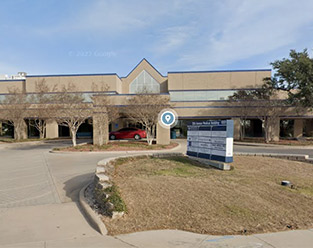Recognizing the Symptoms of Hypopituitarism
 Many of the consequences of a concussion or traumatic brain injury are readily apparent immediately after your accident. You can typically expect headaches, dizziness or confusion, and even nausea within minutes of a TBI. But a concussion can also lead to physical problems that are not as obvious. One of the most common is a change in your hormonal levels, a condition known as hypopituitarism.
Many of the consequences of a concussion or traumatic brain injury are readily apparent immediately after your accident. You can typically expect headaches, dizziness or confusion, and even nausea within minutes of a TBI. But a concussion can also lead to physical problems that are not as obvious. One of the most common is a change in your hormonal levels, a condition known as hypopituitarism.
What Is Hypopituitarism and What Causes It?
Hypopituitarism happens when your pituitary gland, which regulates many bodily functions, is unable to produce hormones, either because of trauma or some other condition, such as a tumor. The pituitary gland, about the size of a pea, can be found at the base of your brain, just behind your nose. The types of impact that you experience as a consequence of a traumatic brain injury can also cause damage or injury to your pituitary gland.
What Are the Common Symptoms of Hypopituitarism?
The hormonal deficiencies that occur when you’ve injured your pituitary gland can lead to:
- Significant changes in your weight (either gain or loss)
- Fatigue, weakness, lack of energy or loss of muscle tone
- Nausea or vomiting
- Changes in blood sugar or blood pressure
- Impaired sexual function or interest
- Hair loss, dry skin or dry throat
How Can Your Doctor Diagnose Hypopituitarism?
The most common tool used for determining whether you are experiencing a hormonal imbalance is a blood test, typically taken first thing in the morning. Doctors may also prescribe medications that intentionally stimulate the production of hormones, so that comparisons can be made in your hormonal levels.
Are There Certain Factors that Increase Your Risk of Hypopituitarism?
Yes. The potential for post-concussion/TBI hypopituitarism increases with age. Furthermore, if you’ve previously suffered a concussion, you will have a greater likelihood of injury to your pituitary gland in a subsequent concussion/traumatic brain injury. Other factors that increase your risk include:
- A prior skull fracture
- A history of post-trauma seizures
- A prior diagnosis of diffuse axonal injury (DAI), where nerve fibers in the brain have been torn in a traumatic injury
Contact Us to Set Up an Appointment
At Advantage Healthcare Systems, we have extensive experience working successfully with individuals who suffer any type of concussion, TBI or traumatic brain injury. Call us toll-free at 1-877-487-8289 or fill out the form provided below to schedule an assessment. We offer locations across Texas, including Fort Worth, Dallas and San Antonio.





